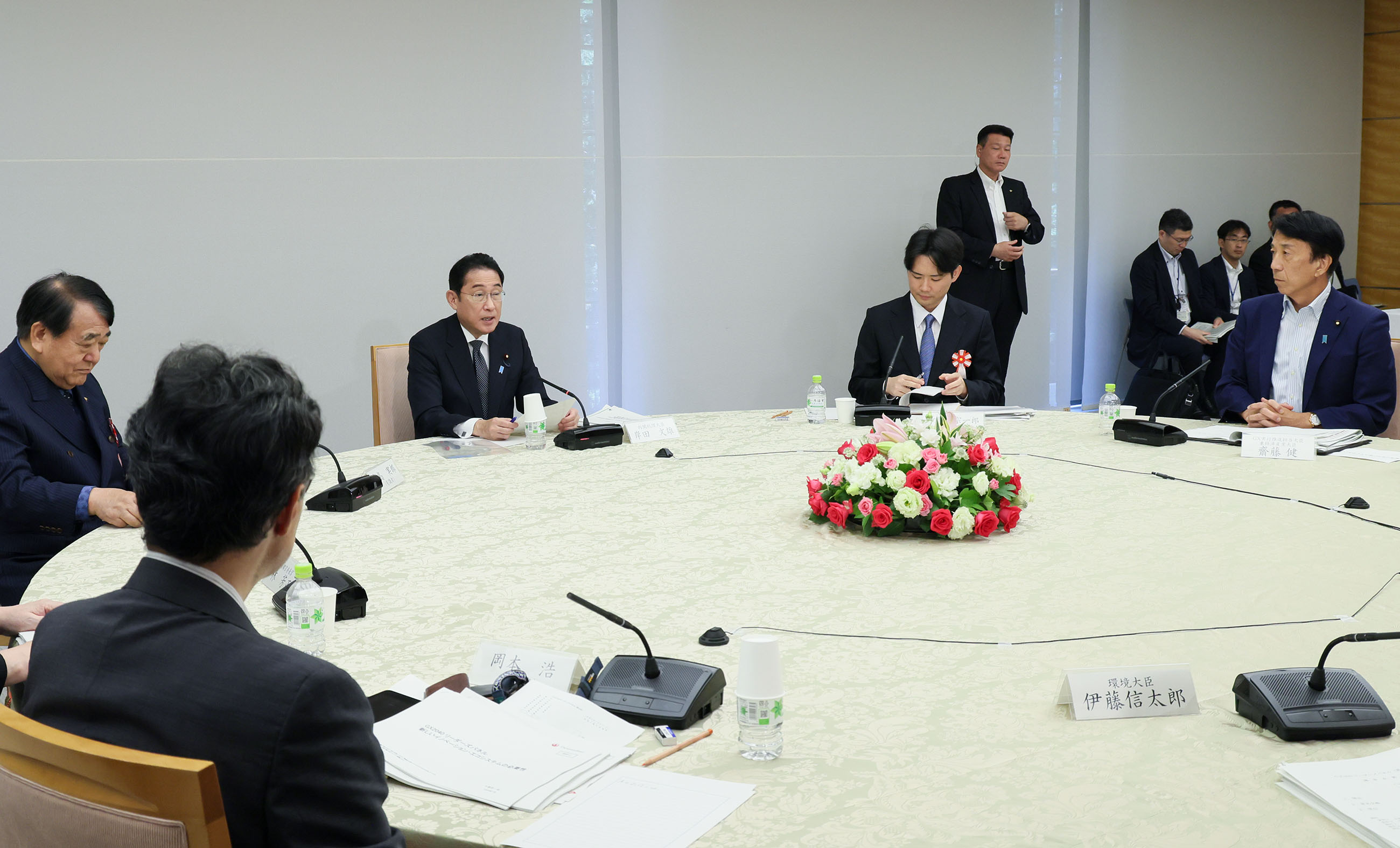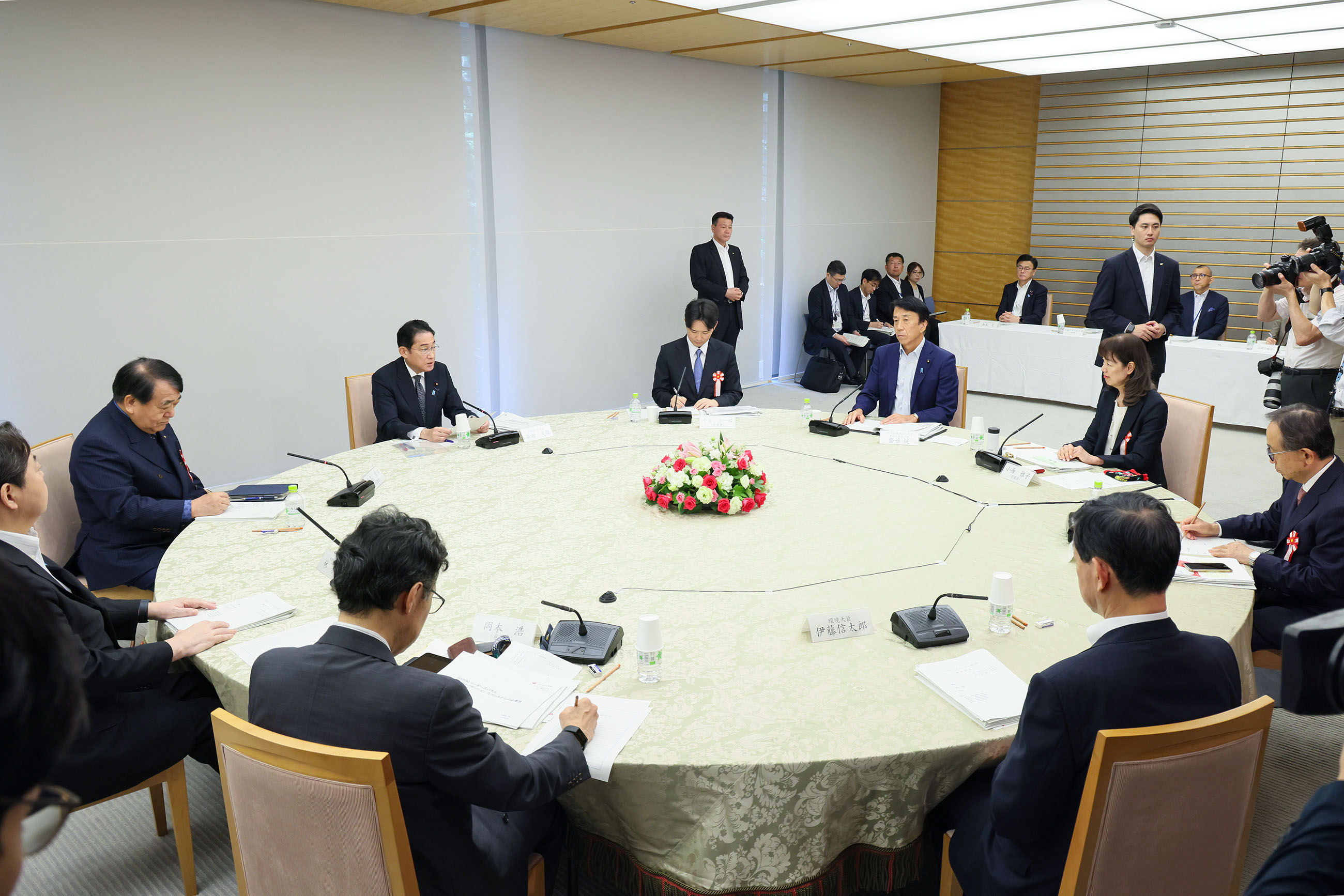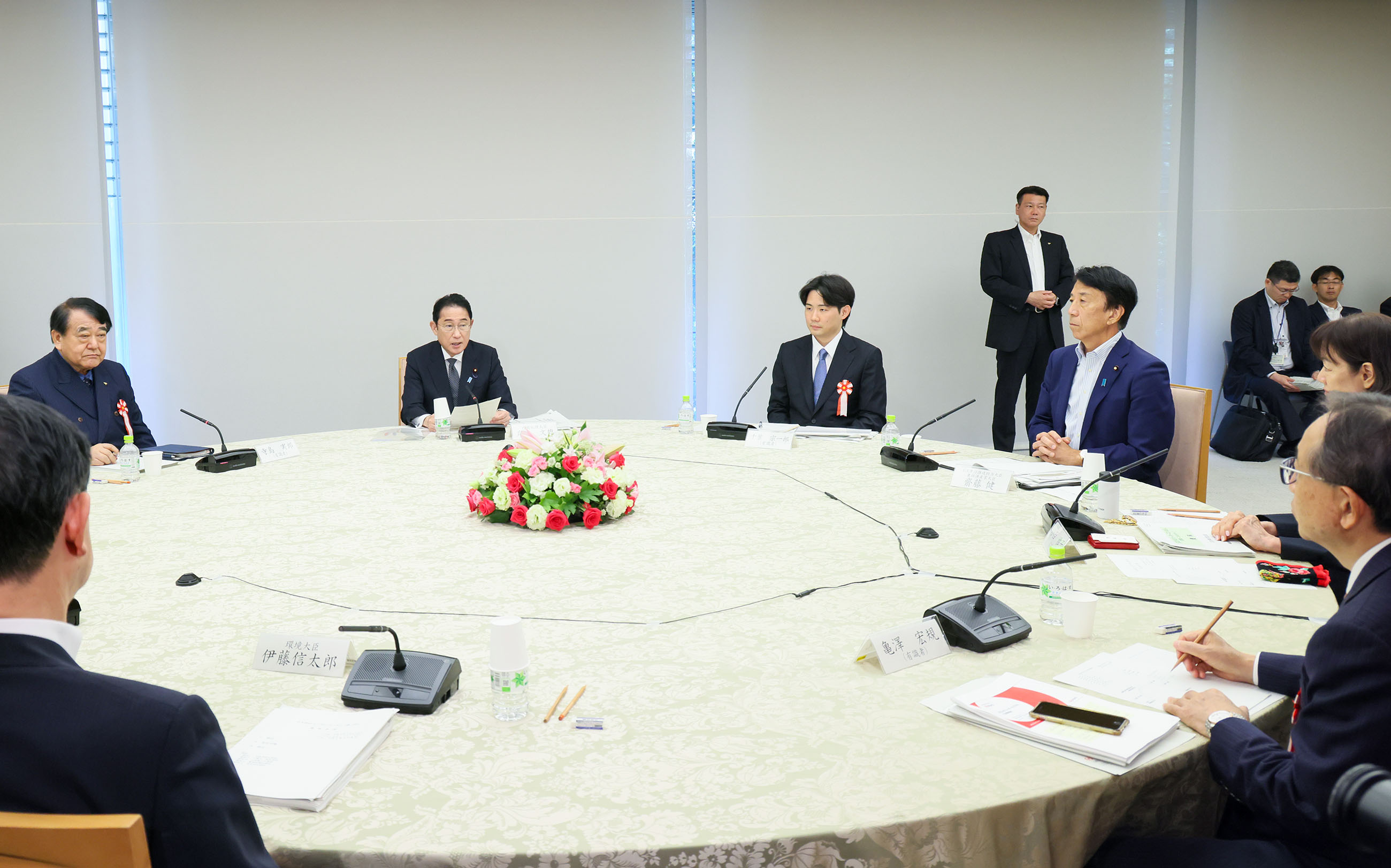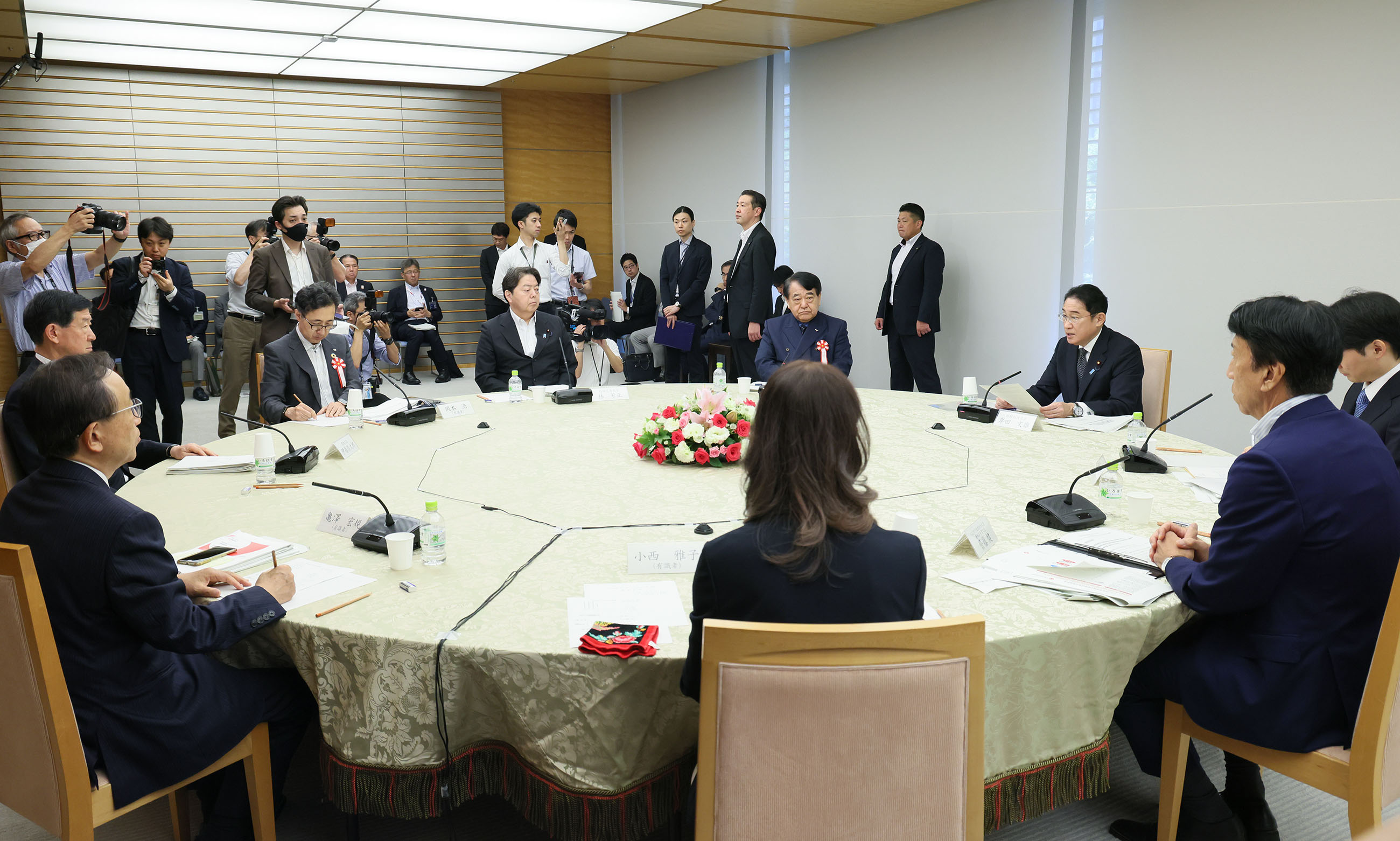GX 2040 Leaders Panel
July 23, 2024
[Provisional translation]
On July 23, 2024, Prime Minister Kishida attended the second meeting of the GX 2040 Leaders Panel at the Prime Minister’s Office.
At the meeting, the participants exchanged views.
Following the discussions, Prime Minister Kishida said:
“In the second meeting today, we listened to your insights mainly on the ideal form of energy, industrial structures, and industrial locations, in light of the global situation. I would like to extend my gratitude for your cooperation.
I believe that, based on today’s discussions, we need to incorporate the following three points when drawing up a comprehensive national strategy to be formulated at the end of the year and the next Strategic Energy Plan. I ask Minister in charge of GX to advance necessary deliberations with the relevant ministers.
Firstly, we must realize green transformation (GX) that will fully utilize Japan’s strengths.
We received valuable proposals again today, such as that what is important in utilizing Japan’s advantages is comprehensive engineering capabilities that will draw out the strengths of Japan, a country with a full set of industries, as well as the combination of initiatives open to overseas, such as “GX combined with DX (digital transformation)” and “GX combined with Asia.” With a view to giving shape to a mechanism that will make state-of-the-art knowledge, including that from abroad, serve as a catalyst for growth from these perspectives, we will push ahead with discussions from both viewpoints of GX and our growth strategy of a New Form of Capitalism.
Secondly, we must realize industrial locations that will accelerate GX.
The decarbonization of industrial structures will bring about a huge transformation of what industrial locations and industrial accumulation should be like. It requires the realization of an ideal form of efficient and effective industrial locations from brand-new points of view, such as by going beyond the existing assumption of supplying energy to meet demand, supplying either energy or data in an optimal manner, or concentrating industries in areas where supply sites of hydrogen and other decarbonized energy sources are located. From these perspectives, we will give concrete shape to regulatory and institutional measures more swiftly.
Thirdly, we must create realistic pathways to transition.
We were informed that there is a growing recognition of the importance of realistic transition to a decarbonized society in Europe and the United States as well. Since 2021, Japan has advocated for various transition pathways depending on industrial structures of each country, while adhering to its goal of achieving carbon neutrality. Following the discussions in the Hiroshima Summit and the COP28 (28th Conference of the Parties to the United Nations Framework Convention on Climate Change), Japan has been promoting the Asia Zero Emission Community (AZEC) initiative. We will compile the comprehensive national strategy and next Strategic Energy Plan with an eye on our response to transition finance and carbon border adjustment mechanisms and make them policies that will demonstrate Japan’s high ambition toward decarbonization.
I would like to repeat my appreciation for your valuable insights and hope for your continued cooperation. Thank you very much for today.”



